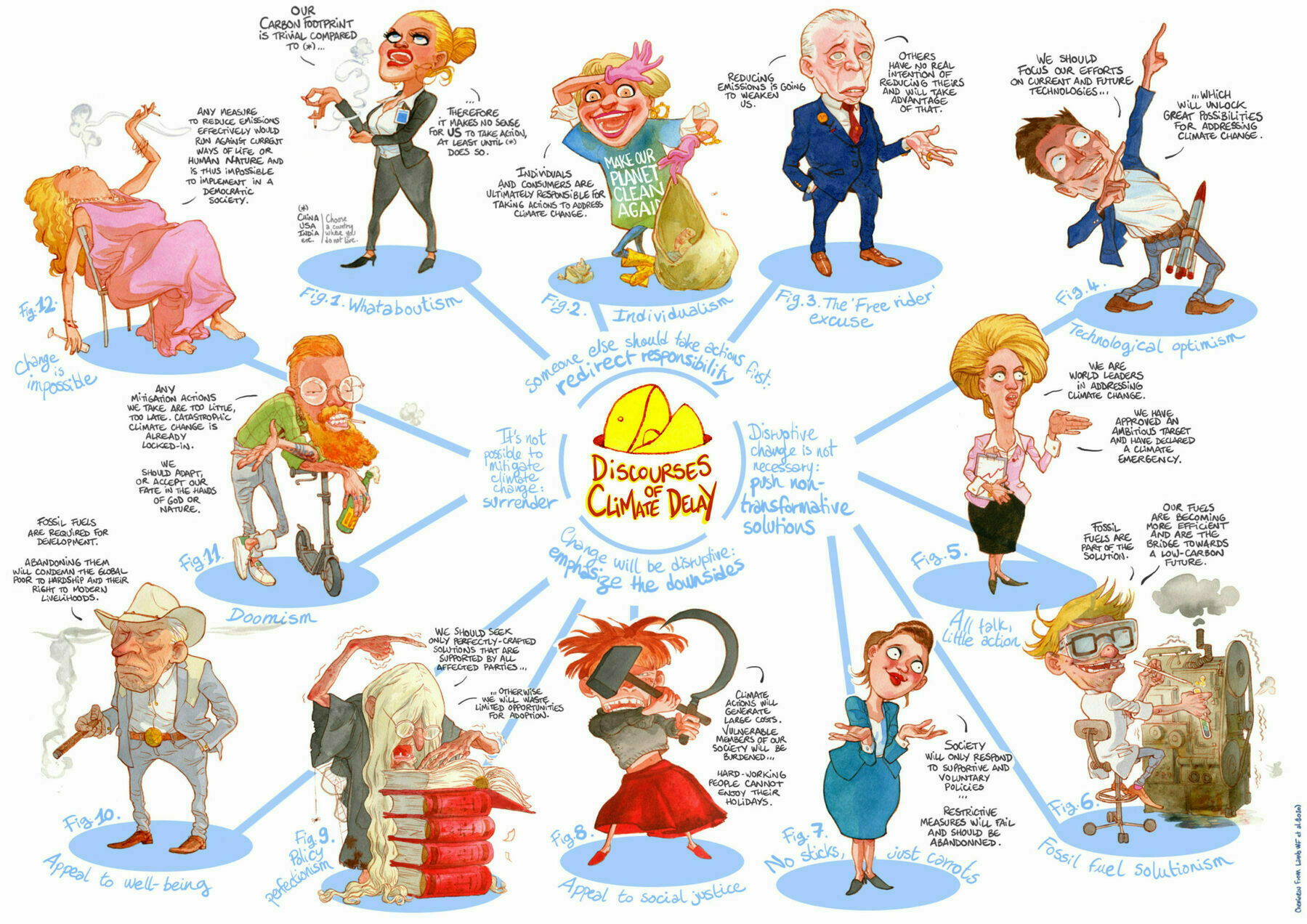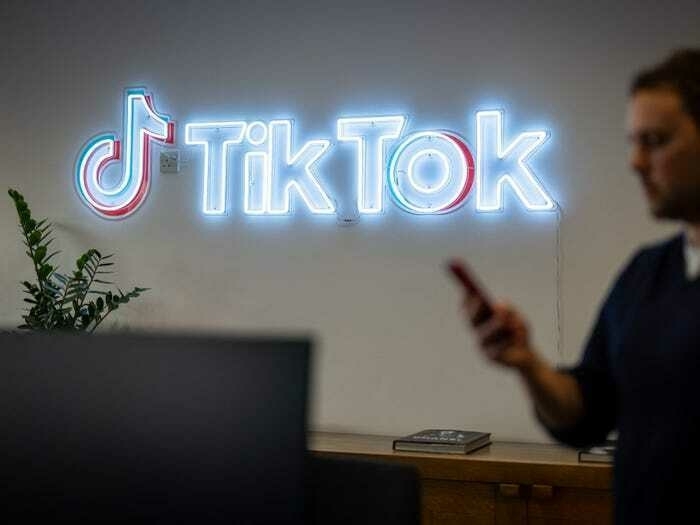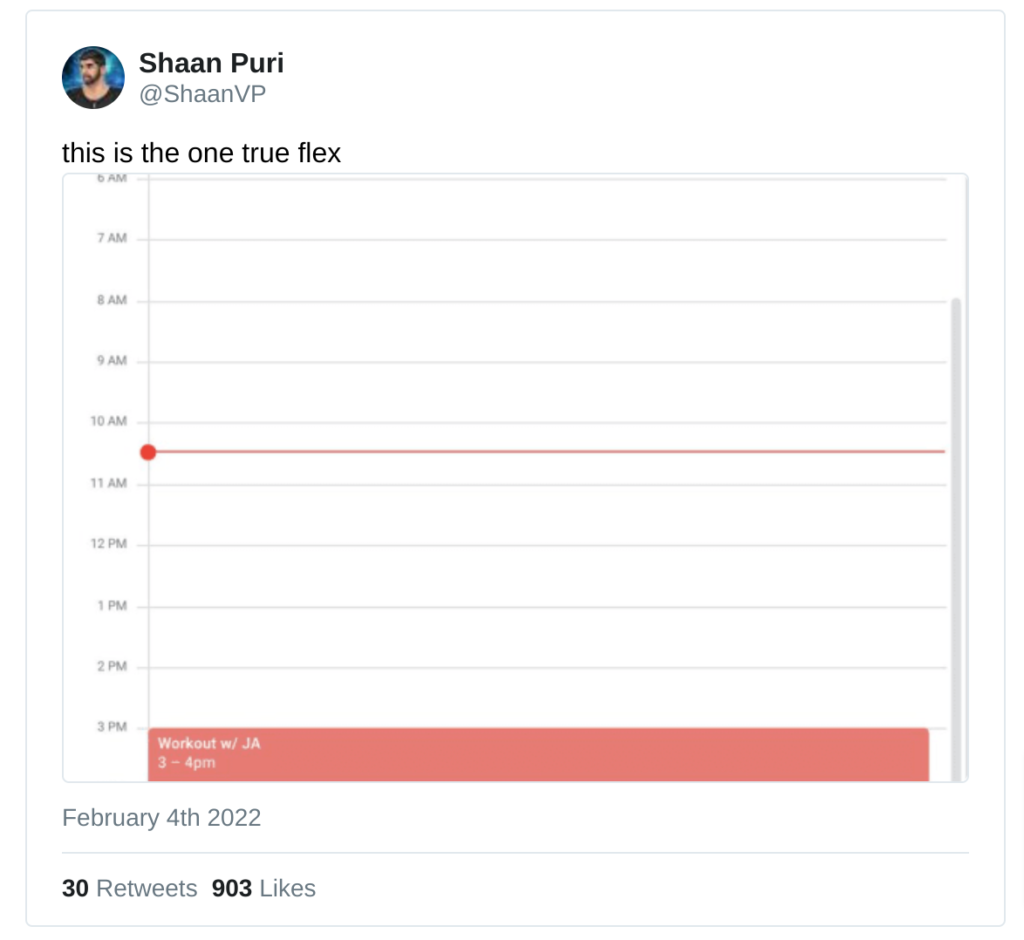2022
Foregrounding externalities
I found this article via the excellent Sentiers, which I support as a member. It discusses the importance of making visible externalities — a term which is reasonably common in literature relating to economics and risk, but not general discourse.
An externality is “an indirect cost or benefit to an uninvolved third party that arises as an effect of another party’s (or parties') activity”. In this case we’re talking about the cost of extracting materials from the ground and shipping them around the world.
The shipping container led to the highly sophisticated supply chains we see today, which has been extremely efficient in making, exploiting and creating a form of global labour and material arbitrage.Source: Designing without depletion: Joseph Grima’s non-extractive architecture | ForegroundIt is vital to the relocating and offshoring of production to places where the costs are far lower. But even more importantly it makes the consequences, or ‘externalities’, of production completely invisible to Western consumers.
What if we suddenly decided that we’re going to stop pretending those things don’t happen? What if we embrace the consequences of what it means to manufacture products and to build, and to price its full cost? If the sticker price included the full cost of everything we build, then suddenly making things locally and sourcing materials locally would become much more attractive.
Slack emboldens the meek
This is a useful article which focuses on the lack of internal Codes of Conduct and community managers within organisations. Performativity in the workplace is a thing, and workplace chat tools can escalate those types of behaviours into new levels of toxicity.
People act differently online, and tools like Slack, while not expressly built to hook users, still make work feel like social media. Emoji reactions and replies provide the same validation as likes and retweets. “I don’t post online anymore because I don’t like being so public, but if I have something fun going on in my life, I will put that into Slack,” said Rebecca Levin, a Program Manager at research startup Maze. And as Ellen Cushing noted in the Atlantic, like Twitter and Reddit, discussions in Slack feel “categorically different, somehow less real.”Online, everyone is engaged in a digitally-mediated performance. As Erving Goffman wrote, “We are all just actors trying to control and manage our public image.” And the pressure to maintain that image can quickly turn reasonable people into pundits. When news breaks, “there’s this feeling that if I don’t post about it on Twitter, I’m complicit,” said Charlie Warzel, co-author of Out of Office: The Big Problem and Bigger Promise of Working from Home. “You end up weighing in as if you’re some sort of public figure, despite the fact that you’re not.”
Slack emboldens the meek; compared to an all-hands, the ease of posting makes speaking up a lot easier. Anne Helen Petersen, Warzel’s partner and co-author, has found herself in that position, and sees it as a mixed blessing. The freedom is powerful, she said, “but it also opens a portal. It’s just more discourse, right?”
[...]Leaders often treat Slack as just another tool. But as Godwin’s Law wryly observed, any extended online discussion is a Hitler comparison waiting to happen. “You’re creating a public room where people are empowered to talk back,” said Marketos. “If something starts to blow up in Slack, you need to have an amazing response that’s defensible if it’s screenshotted and shared with a reporter.” While few HR teams are experienced in rapid-response crisis communications, for community managers, “it comes naturally, and it’s very much an unsung part of their skillset.”
Source: The Extremely Online Workplace | by Benjamin Jackson
Discourses of Climate Delay
I came across this and am sharing it to remind myself of all of the ways that people try to avoid the very pressing problem of the climate emergency.
On GitHub Achievements
GitHub is owned by Microsoft, and Microsoft was one of the earlier adopters of the Open Badges standard. So when I saw this announcement about GitHub Achievements, I naturally assumed they’d be Open Badges.
However, I don’t think that’s the case. I think it’s another staging post in the vendor lock-in long game.
Achievements celebrate and showcase your journey on GitHub. You can take a trip down memory lane as you reminisce on some of your earlier work (yes, certain achievements will surface events dating back to the beginning!). You can also share them on social media to show off the new badges you’ve earned. We’ll only ship a few to start, but as we roll out more over time, achievements will begin to paint a clearer picture of you and the work you’re passionate about.Source: Introducing Achievements: recognizing the many stages of a developer’s coding journey | The GitHub Blog
Teaching about dead white guys in an age of social media
I’m pleased that I completed my formal education and moved out of teaching before social media transformed the world. In this article, Marie Snyder talks about teaching an introductory Philosophy course (the subject of my first degree) and the pushback she’s had from students.
There’s a lot I could write about this which would be uninteresting, so just go and read her article. All I’ll say is that, personally, I still listen to musicians (like Morrissey) whose political views I find abhorrent. Part of diversity is diversifying your own thinking.
It’s important that we scrutinize behaviours. It’s useful to clarify that discrimination or harm of any kind — from former cultural appropriation to sexual crimes — is not to be tolerated. We should definitely overtly chastise damaging behaviours of people as a means to shift society to evolve down the best timeline. But we are all greater than our worst actions; for instance, Heidegger’s overt anti-semitism doesn’t obliterate his theories of being. His student and lover, Hannah Arendt, is another name potentially requested stricken from syllabi for a collection of racist comments despite her quarrel with her mentor about his bigoted position.Source: On Tossing the Canon in a Cannon | 3 Quarks DailyWe have to look at ideas, not people, when sifting the wheat from the chaff. Some ideas stand the test of time even if their author is found otherwise wanting. It doesn’t suggest that they’re an honourable person when we find a piece of work worthy of our attention, and it’s not like we’re contributing to their wealth if they’re long dead. We need to bring back a nuanced approach to these works instead of the current dichotomous path of slotting people in a good or bad box.
Social-first searching
I don’t see this as such a weird thing, especially when it comes to food. For example, my wife follows lots of local places on Instagram and will research new places using that app when we travel. I tend to use Google Maps for that kind of thing. Neither of us would start with a regular web search, because context is important.
Even back prior to 2010, I can remember Drew Buddie doing a TeachMeet presentation on ‘Twitter is my Google’. The point is that humans are social creatures. We want recommendations and to see what we could be potentially missing out on…
Nearly 40% of Gen Z prefers searching on TikTok and Instagram over Google Search and Maps, according to Google's internal data first reported by TechCrunch.Source: Nearly Half of Gen Z Prefers TikTok and Instagram Over Google Search | Business InsiderGoogle confirmed this statistic to Insider, saying, “we face robust competition from an array of sources, including general and specialized search engines, as well as dedicated apps."
Chromebooks banned in Danish schools
Slowly, and then all at once is how a ‘splinternet’ happens. I’m seeing more and more cases of the EU standing up to so-called Big Tech companies like Google over data processing agreements.
In this case, it’s Denmark’s data protection agency, but I should imagine other European countries might follow suit. There’ll be an uproar, though, because data security and sovereignty aside, Google absolutely nailed it with that operating system.
Denmark is effectively banning Google’s services in schools, after officials in the municipality of Helsingør were last year ordered to carry out a risk assessment around the processing of personal data by Google.Source: Denmark bans Chromebooks and Google Workspace in schools over data transfer risks | TechCrunchIn a verdict published last week, Denmark’s data protection agency, Datatilsynet, revealed that data processing involving students using Google’s cloud-based Workspace software suite — which includes Gmail, Google Docs, Calendar and Google Drive — “does not meet the requirements” of the European Union’s GDPR data privacy regulations.
Specifically, the authority found that the data processor agreement — or Google’s terms and conditions — seemingly allow for data to be transferred to other countries for the purpose of providing support, even though the data is ordinarily stored in one of Google’s EU data centers.
Productivity is the enemy of creativity
I like the metaphor used in this post of being light a lightbulb: fully one, or off. In fact, not only have I organised my working life to be like this (I can’t work at half pace, and it’s burned me out when I’ve been employed), but this is the advice I give to my kids when they play sports.
“Most people in life are dim lights, they're on but they are not bright. Because they are trying to conserve energy. You should make a choice, you are either on or off. There is either GO time or there is relaxing time. Try to be more binary. You have more energy when it’s Go time" - Andrew “Cobra” Tate.Source: Be Like a Light Bulb: The Importance of Resting Ethic | The Hard Fork by Marvin Liao[…]
Naval [Ravikant] famously said: “Productivity is the Enemy of Creativity”
Rest is absolutely critical for high performance. Without it, it’s like revving your engine until it breaks or blows up. We’re in a new world now where our brains power everything. As the Doomberg crew calls it: “The Gig Economy for Brains.”
Naval again says: “Some of the most creative and productive people I have ever met work in multi-week bursts and then have weeks where they just idle with little done. It’s the nature of the human animal.”
All-in and fully energized OR quiet and at rest. There is no in between. This is a key habit for effective work in the modern day. Don’t be a dim light.
Spring '83
John Johnston put me onto this via a comment on my personal blog. Spring ‘83 is a protocol developed by Robin Sloan, multi-talented developer, olive farm owner, and author of novels such as Mr. Penumbra’s 24-Hour Bookstore.
The internet these days is much less fun and weird than it used to be, which is sad. Here’s an example of the protocol in action at the site spring83.mozz.us and you can have a play about at The Oakland Follower Sentinel by creating your own keypair (see the blue sidebar!)
For me, the recent resurgence of the email newsletter feels not much like a renaissance, and more like a massing of exhausted refugees in the last reliable shelter. I’m glad we have it; but email cannot be the end of the story, either.Source: Specifying Spring ‘83 | Robin SloanI’m dissembling a bit. The truth is, I reject Twitter, RSS, and email also because … I am hyped up to invent things!
So it came to pass that I found myself dreaming about designs that might satisfy my requirements, while also supporting new interactions, new ways of relating, new aesthetics. At the same time, I read a ton about the early days of the internet. I devoured oral histories; I dug into old protocols.
The crucial spark was RFC 865, published by the great Jon Postel in May 1983. The modern TCP/IP internet had only just come online that January, can you believe it? RFC 865 describes a Quote of the Day Protocol:
A server listens for TCP connections on TCP port 17. Once a connection is established a short message is sent out the connection (and any data received is thrown away). The service closes the connection after sending the quote.That’s it. That’s the protocol.I read RFC 865, and I thought about May 1983. How the internet might have felt at that moment. Jon Postel maintained its simple DNS by hand. There was a time when, you wanted a computer to have a name on the internet, you emailed Jon.
There’s a way of thinking about, and with, the internet of that era that isn’t mere nostalgia, but rather a conjuring of the deep opportunities and excitements of this global machine. I’ll say it again. There are so many ways people might relate to one another online, so many ways exchange and conviviality might be organized.
Spring ‘83 isn’t over yet.
No more low-speed fart sounds for Teslas
Here in the UK, I’ve only ever heard electric vehicles make that high-pitched robotic hum at low speeds. However, it seems there was a proposal in the US for car owners to be able to set their own noise.
That turned out not to be a great idea for those who are blind or partially-sighted. It would also lead to a cacophony of noise for regularly-sighted people, to be honest…
Back in 2019, NHTSA introduced a proposed rule-making that would have allowed drivers to “select the sound they prefer from the set of sounds installed in the vehicle.” The idea was an amendment to a previous rule requiring EVs to make fake sounds at low speeds to prevent injuring pedestrians, especially people who are blind or visually impaired. But after soliciting feedback from the industry and consumer groups, the agency says it is scrapping the proposed rule.Source: EV owners won’t be able to pick their own low-speed noise after NHTSA scraps proposal - The Verge“The great majority of the comments on the [notice of proposed rule-making], including those submitted by advocacy organizations for the blind and by people who are blind or who have low vision, did not favor the proposal to allow hybrid and electric vehicles to have an unlimited number of different pedestrian alert sounds,” a spokesperson for NHTSA said. “Most of those comments favored more uniformity, rather than less, in the number and types of alert sounds allowed.”
[...]Currently, most EVs emit the same robotic hum when operating at low speeds. And NHTSA says that’s fine, just so long as it doesn’t add a bunch of additional sounds that owners can select. Basically, the agency says it wants to prevent a situation where you have tens of thousands of EVs on the road making all sorts of musical sounds or bird noises — or fart sounds, for that matter. (Tesla, I’m looking at you.)
Unintended consequences of smart thermostats
It must have been about five years ago when we bought a Nest thermostat. Before that point, the temperature of our house would be a continuous low-level source of friction. Since then, not only has it ceased to be a point of contention, but it’s also saved us money.
This article points out that, while there are really positive benefits of reducing energy usage at scale, there are unintended side effects in terms of spikes at times when renewable energy isn’t available.
Set by default to turn on before dawn, the smart thermostats unintentionally work in concert with other thermostats throughout neighborhoods and regions to prompting inadvertent, widespread energy-demand spikes on the grid.Source: Smart thermostats inadvertently strain electric power grids | Cornell ChronicleThe smart thermostats are saving homeowners money, but they are also initiating peak demand throughout the network at a bad time of day, according to Cornell engineers in a forthcoming paper in Applied Energy (September 2022.)
[…]
Lee and Zhang investigated “setpoint behavior” and learned that most homeowners use the smart thermostat’s factory-default settings. Evidence showed that residents remain confused about how to operate their thermostats and are often unable to program it, the authors said.
[…]
While the setpoint schedules are designed to achieve the energy-saving benefit, the peak demands are concentrated primarily when renewable energy is unavailable – aggravating the peak demand by nearly 50%, according to the paper.
[…]
Without a tenable way to store energy from renewable sources like solar power, the electric utilities will be unable to supply this peak demand, which prompts fossil-fuel generators to satisfy the power load. “This can offset the greenhouse gas emissions benefit of electrification,” Lee said.
(Machine) Creativity
It is genuinely amazing what you can create these days with an AI model by simply inputting a few words of natural language. Craiyon (formerly DALL·E mini) allows anyone to do this right now, but there’s also previews of much more powerful models that will be available soon.
As Albert Wenger asks, what does this mean for creative people? I don’t think technology ever completely replaces but rather augments. So I think we’ll see even more artists work with AI models to create amazing things.
During my run today, I was thinking about how awesome it would be to generate running music perfectly suited to the route I was going to run. That’s entirely possible if we continue along this trajectory!
Recently we have had several breakthroughs, first starting with large language models that can tell stories, and now with DALL-E2 and midjourney, two models that can generate amazing imagery based on textual input. For example, here is an image “imagined” by midjourney based on the prompt “Sailing across the alps”Source: The Meaning of Machine Creativity | Continuations by Albert WengerIt is mind-bending to sit with this image for a while. A machine created it and did so within a space of minutes, yet it is full of imagination and detail and could easily be on the cover of a book or the walls of a museum.
So what does it mean that we now clearly and demonstrably have creative machines?
Personal Publishing Principles
I really like the approach of coming up with your ‘personal publishing principles’ for your website, blog, and newsletter. This is CJ Chilvers' version, which I discovered via Rebecca Toh. Below are some of my favourites from CJ’s list.
This is the place to try out all the crazy ideas/projects/products I come up with. Only 1 in 100 of them will resonate, so I need a place that feels good to put up 99 failures — at least. You don’t need 100 products necessarily. But you probably need 100 landing pages.Source: Personal Publishing Principles | CJ Chilvers[…]
Fail in public. Try things. Don’t be boring. See what sticks.
[…]
Curation still matters because “it’s not the customer’s job to care.” To paraphrase Dave Pell, Seth Godin, and Hugh MacLeod: no one gives a shit about you or your projects. Bring them something really interesting from all corners of the web and they’ll read next week…maybe.
Image: Cris DiNoto
The future is the least renewable resource
Carlos Alvarez Pereira, vice president of the Club of Rome is interviewed by WIRED about a book called The Limits to Growth, published in 1972. Interestingly, he’s both critical of capitalism and confident that a cultural movement “hidden in plain sight” means that we’ll be in a better position than we are now.
The computer modeling made it plain: If people continued to overextract finite resources, pollute on a massive scale, and balloon the human population in an unsustainable way, civilization could collapse within a century. It sounds like that modeling could have been done last week, what with climate change, water shortages, and microplastics corrupting every corner of the Earth. But in fact it dropped in the 1972 book The Limits to Growth, published by the Club of Rome, an international organization of intellectuals founded in 1968.Source: The Infamous 1972 Report That Warned of Civilization's Collapse | WIREDTo mark the book’s 50 year anniversary, WIRED sat down with Alvarez Pereira to talk about how that future is shaping up, what’s changed in the half-century since Limits, and how humanity might correct course. The conversation has been condensed and edited for clarity.
[...]WIRED: Presumably economists weren't too fond of it because growth is inherent to capitalism. And unchecked growth really, a kind of maniacal, ecologically-destructive growth at all costs that's built into the system.
CAP: What the system has done, as a mechanism to continue with growth at all costs, is actually to burn the future. And the future is the least renewable resource. There is no way that we can reuse the time we had when we started this conversation. And by building up a system which is more debt-driven—where we keep consumption going, but by creating more and more debt—what we're actually doing is burning or stealing the time of people in the future. Because their time will be devoted to repaying the debt.
Amazon as a dumb pipe
I like this idea from Cory Doctorow, but monopolies tend to like exploiting their monopoly position. Still, it might be a way for Amazon to get around being scrutinised closely by regulators?
But what if buying local was as easy as shopping as Amazon? What if you could buy local while shopping on Amazon?Source: View a SKU. Let’s Make Amazon Into a Dumb Pipe | by Cory Doctorow | MediumI got this idea from Library Extension, a browser plugin that notices if you’re looking at a book on Amazon and checks to see whether it’s available for checkout at your local library.
If the book is available to borrow at your public library, the extension shoves down Amazon’s “Add to Cart” button and draws a box with buttons to reserve that title at any of the local libraries that have it on the shelf.
This is basically awesome. It acknowledges that Amazon’s catalog, search, recommendations and reviews are useful to readers —and lets readers commodify all that stuff, treat it as infrastructure for discovering books to check out of your local library.
This is possible because books have standard identifiers: the ubiquitous ISBN. It’s easy for a plugin to recognize an ISBN when it sees it, and it’s easy for that plugin to look up the ISBN in another database.
In theory there’s no reason this has to be limited to checking books out of your library. You could just as easily write an extension that replaces Amazon’s “Add to Cart” button with a “Buy this on Bookshop.org” button. That’s the cool thing about unique identifiers — they’re great for cross-referencing.
Ian Bogost on hybrid work
I always enjoy Ian Bogost’s articles for The Atlantic as they’re thought-provoking. In this one, he talks about how ‘hybrid work’ is doomed, mainly because The Office is a construct, a way of organising life and work, and heavily invested in the status quo.
A rational assessment of your time and productivity was never quite at issue, and I think it never will be. Companies have been pulling employees back to work in person irrespective of anyone’s well-being or efficiency. That’s because return-to-office plans are not concerned, in any fundamental way, with workers and their plight or preferences. Rather they serve as affirmations of a superseding value—one that spans every industry of knowledge work. If your boss is nudging you to come back to your cubicle, the policy has less to do with one specific firm than with the whole firmament of office life: the Office, as an institution. The Office must endure! To the office we must go.Source: Hybrid Work Is Doomed | The AtlanticThis should be obvious, but somehow it is not: The existence of an office is the central premise of office work, and nothing—not even a pandemic—will make it go away.
[...]Even in the technology sector, where the tools of remote work are manufactured, the Office reigns supreme. Before the pandemic, Big Tech companies doubled down on the sorts of work environments that had been common for almost a century: urban high-rises and suburban office parks. (Think of Microsoft’s campus in Redmond, Washington; Google’s and Facebook’s in Silicon Valley; Apple’s spaceship in Cupertino; and the Salesforce Tower in San Francisco.) Their deluxe office amenities—free food, gymnasiums, medical care, etc.—only underscore this point: The tech industry has a deep investment in the most conservative interpretation of office life.
If the companies that design and build the very foundations for remote work still adhere to the old-fashioned values of the Office, what should we expect from all the rest? It’s still possible that hybridized knowledge work will become the norm, with work-from-home days provided as a perk. But to get there, office workers must organize, and take the goals and power of the Office into account. It does not want to be flexible, and it cares little for efficiency. If the Office makes concessions, they will be minor, or they will take time; hybrid work is not a revolution.
Steaming open the institutional creases
This is a heart-rending article by Maria Farrell, who suffers from Chronic Fatigue Syndrome. She details her experiences for Long Covid suffers, and it’s not easy reading.
I’m including this quotation mainly because she talks about the impact of the Tory government in the UK over the last decade or so. It’s easy to forget that things didn’t use to be like this
I hid for two years in graduate school, the first year in a wonderful and academically undemanding programme with a tiny, lovely class. I wrote an essay about Walter Benjamin and interactive media that winter, and I remember pulling each sentence rather brutally from the morass of my former abilities and piling them on top of each other. Let’s just say the angel of history made sense to me in a way she had not, before. Minute on minute, I could barely make the letters settle into words, forget about forming sentences or ideas, but day on day it turned out I could do it. It just took a higher threshold of discomfort than I’d previously believed manageable, and about eight times longer. I’m so glad I learnt this. The knowledge that impossibly difficult intellectual tasks can be worked through piecemeal – not in darts and dashes of caffeinated brilliance – was not natural to my temperament, and it’s why I can still do things.Source: Settling in for the long haul | Crooked TimberIt’s a very bourgeois thing to be able to hide out in grad school. I’m always embarrassed when people remark on how many degrees I have. It put me into financial penury for quite a few years, but it felt worth it to still outwardly look like a person who was moving forward in life, not someone whose clock had stopped in August 1998 when I failed to heal from glandular fever. All that is harder now in Britain, as Tories systematically steam open the institutional creases people like me could fold ourselves into, and dismantle the social welfare that would have held many others as they waited to be well. I started off with moderate M.E. and now, much of the time, I would say it is mild.
Steaming open the institutional creases
This is a heart-rending article by Maria Farrell, who suffers from Chronic Fatigue Syndrome. She details her experiences for Long Covid suffers, and it’s not easy reading.
I’m including this quotation mainly because she talks about the impact of the Tory government in the UK over the last decade or so. It’s easy to forget that things didn’t use to be like this
I hid for two years in graduate school, the first year in a wonderful and academically undemanding programme with a tiny, lovely class. I wrote an essay about Walter Benjamin and interactive media that winter, and I remember pulling each sentence rather brutally from the morass of my former abilities and piling them on top of each other. Let’s just say the angel of history made sense to me in a way she had not, before. Minute on minute, I could barely make the letters settle into words, forget about forming sentences or ideas, but day on day it turned out I could do it. It just took a higher threshold of discomfort than I’d previously believed manageable, and about eight times longer. I’m so glad I learnt this. The knowledge that impossibly difficult intellectual tasks can be worked through piecemeal – not in darts and dashes of caffeinated brilliance – was not natural to my temperament, and it’s why I can still do things.Source: Settling in for the long haul | Crooked TimberIt’s a very bourgeois thing to be able to hide out in grad school. I’m always embarrassed when people remark on how many degrees I have. It put me into financial penury for quite a few years, but it felt worth it to still outwardly look like a person who was moving forward in life, not someone whose clock had stopped in August 1998 when I failed to heal from glandular fever. All that is harder now in Britain, as Tories systematically steam open the institutional creases people like me could fold ourselves into, and dismantle the social welfare that would have held many others as they waited to be well. I started off with moderate M.E. and now, much of the time, I would say it is mild.
Life cannot be organised
Rebecca Toh is not only a fantastic photographer, but also has a wonderful turn of phrase.
In a way writing is a desperate attempt at organising what cannot be organised – life. But we all valiantly try because what is the alternative.Source: life cannot be organised | rebeccatoh.co
Life cannot be organised
Rebecca Toh is not only a fantastic photographer, but also has a wonderful turn of phrase.
In a way writing is a desperate attempt at organising what cannot be organised – life. But we all valiantly try because what is the alternative.Source: life cannot be organised | rebeccatoh.co



















